Do you want to start your own business but do not have any concrete business ideas? Artificial intelligence (AI) tools like ChatGPT are here to help.
In today’s constantly evolving world, AI has emerged as the go-to tool to generate vivid ideas and insights. It does not matter if you are a seasoned entrepreneur or just starting your business journey — if you know how to utilize an AI tool, you can unlock a world of possibilities for smart business ideas.
Since AI tools have access to machine learning models and a vast knowledge base, they can suggest the most potential business ideas. Keep reading to learn various ways to generate business ideas, including using AI.
Leverage Your Skills to Start a Business
Are your talent or proven track record capable of forming the foundation for a profitable business? Examine your day job responsibilities and activities outside of work, and explore ways to apply those skills to establish your own business.

For example, your office skills could enable you to initiate a consulting business, or your home-based skills could be utilized to launch a dog-walking service. To discover a feasible business idea, pose the questions, “What marketable skills and experience do I possess? Will people readily pay for my products or services?”
If you have got any or some of the following skills, you can start a business leveraging these skills:
- Communication by telephone, chat, or email
- Persuading clients to buy products or services
- Lead professionals from different streams to complete projects
- Resolve business problems using business apps and tools
- Develop software, mobile app, or websites
- Network with people on social media
- Create content like explainer videos, articles, infographics, etc.
- Accounts bookkeeping and tax filing
If you’re working with a limited startup budget, it’s equally important to choose something cost-effective yet scalable. For instance, if you’re looking for the best business to start with $10k, options like dropshipping, launching a digital marketing agency, or offering bookkeeping services are highly feasible. These businesses require minimal upfront investment but offer great growth potential when executed with the right strategy and tools.
If you have a tech background, consider building a business rule engine—a tool that helps companies automate decisions like pricing, approvals, or policy enforcement. These engines reduce the need for manual coding and are in high demand. If you know logic-based programming or workflow automation, this could be a great start for a SaaS product or consulting service.
Get Business Ideas From Online Forums
There are various online forums for business entrepreneurs, professionals, and technical skill experts. You can create an account on these forums and interact with expert members for business ideas. The best way is to create a question thread like “How do I start a small digital marketing agency to serve local businesses?” Find below a list of forums you should visit:
#1. Reddit
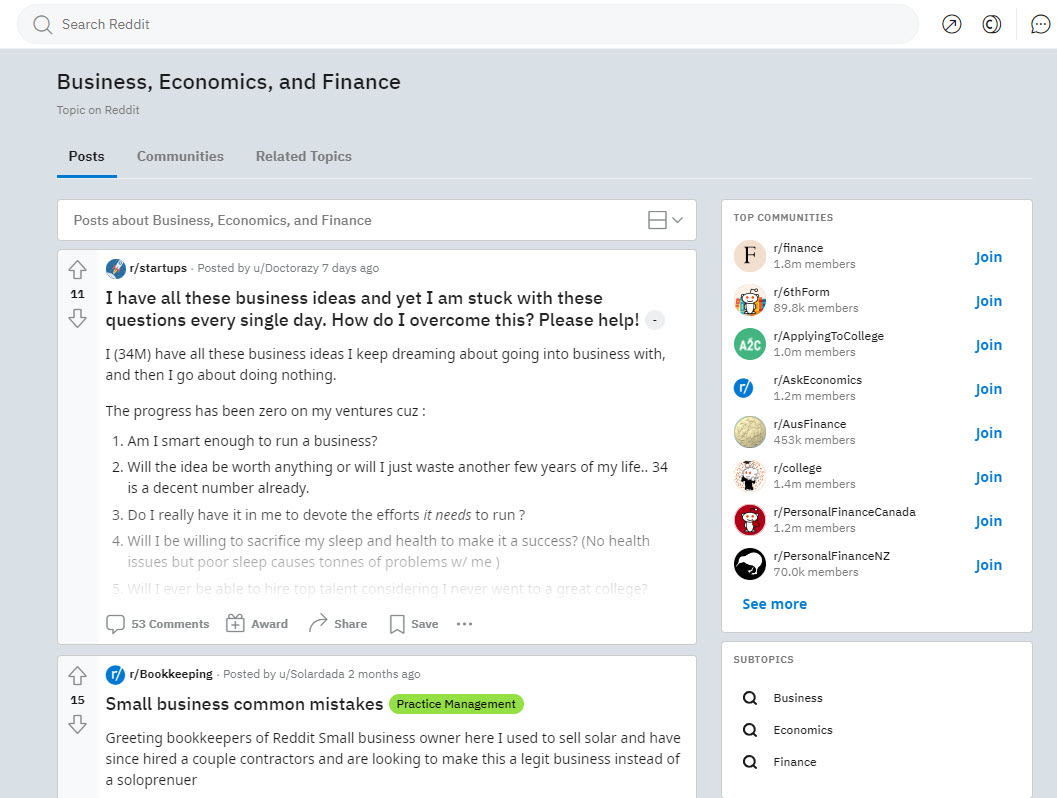
Reddit is one of the most popular destinations for finding business idea suggestions. There are multiple business-centric communities on Reddit that you can subscribe to in order to post questions about or read already published Reddit threads. You can also visit the Business, Economics, and Finance topics on Reddit to read the most trending posts.
#2. Quora
Quora is a reliable online forum for asking questions about business ideas or validating business ideas. You can simply type “Business Ideas” in the Search field of Quora to discover existing questions and answers. Alternatively, you can create a new question if it is not in there already.
#3. Startups.com
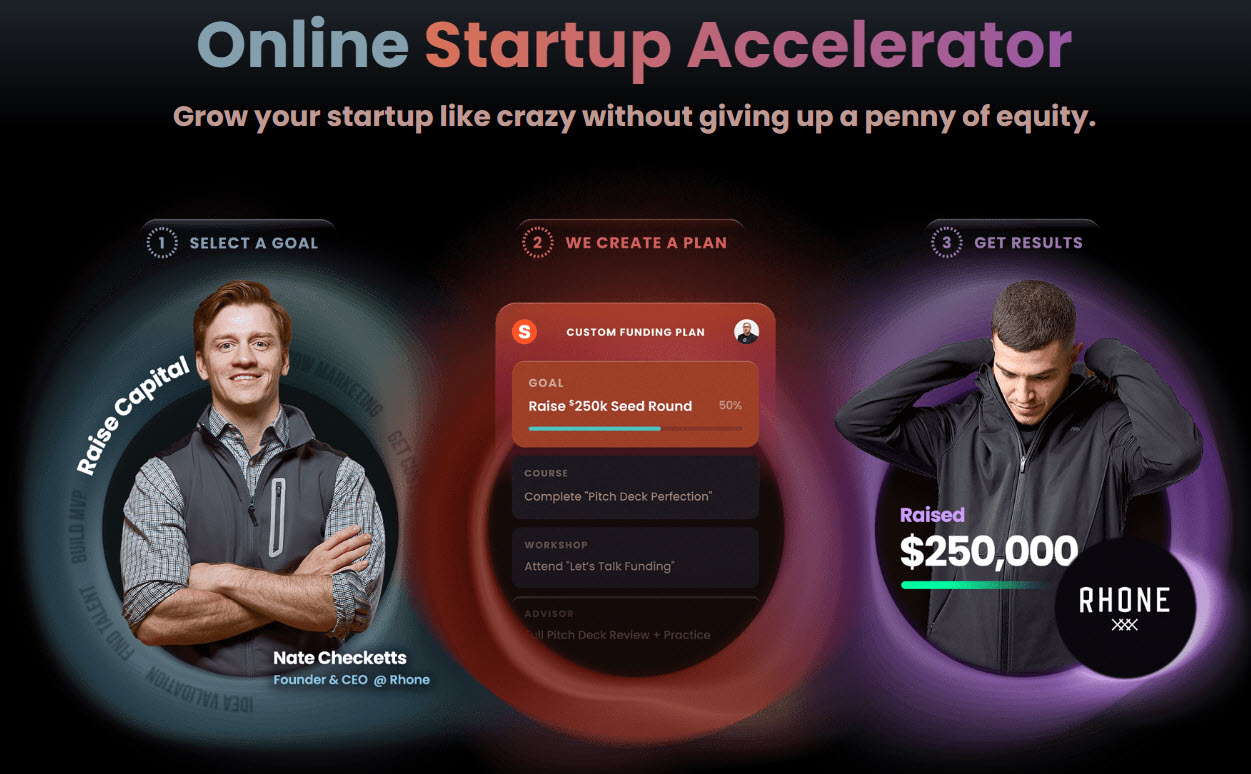
Startups.com is a go-to platform for you if you are looking to start a startup business, validate the product or service of the business, raise seed funds, and more. Entrepreneurs visit this platform for education on business, to learn to plan the startup model, to network with startup mentors, to acquire new customers, to recruit skilled staff, etc.
#4. Small-Business-Forum.net
Small-Business-Forum.net is an online community dedicated to supporting and connecting small business owners. It serves as a forum for entrepreneurs to share ideas, seek advice, and network with like-minded individuals.
If you are indeed willing to let others suggest potential business ideas, do not forget your friends, colleagues, or neighbors who also started a business and are now successful.
Try AI For Business Ideas
The inherent problems of all the above sources to generate valid business ideas are as outlined below:
- These sources have limited knowledge to suggest you several fruitful business ideas.
- Some of the forums or online business idea and planning services will ask you for a hefty fee before they disclose these ideas.
- Most of these platforms and sources are unable to perform trend and market gap analysis.
- A few ideas you get are already overly exploited by other entrepreneurs.
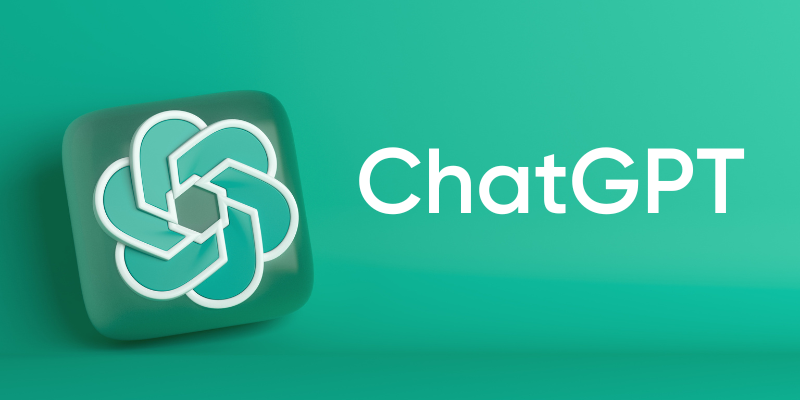
To overcome these known and many other unknown problems of common business idea sources, you could start using AI tools. AI tools can access their AI/ML model and database to create novel business ideas with heavy revenue potential if executed the right way. Also, some of the AI tools can perform hybrid searches using the public Internet and internal databases to outline unique business ideas.
Common Business Ideas by AI
Before you can look for novel business ideas that match your skill set, take a look at the following common business ideas. You can use AI tools like ChatGPT and Google Bard to elaborate on how to progress with the idea.
According to ChatGPT and Google Bard, the following are the trending and common business ideas that you can explore:
- Starting an eCommerce Store on Amazon or Shopify
- Develop mobile apps for entertainment, gaming, work, or productivity
- Setting up a digital marketing agency to help businesses with SEO, SEM, social media management, Google Ads, Facebook Ads, etc.
- Start a subscription box service to deliver curated boxes of gourmet food, fashion and beauty products, and fitness supplies
- Become a life coach
- Create online courses to sell to learners
- Virtual assistant agency to offer online technical support, marketing assistance, and administrative support to medium and large businesses
- Set up an event planning agency to plan public events, corporate events, weddings, birthday celebrations, etc.
- Develop an app to aggregate local restaurants and delivery personnel to set up a cloud kitchen and start delivering foods
- Team up with creative professionals to create digital content like articles, graphics, vector images, videos, etc., for websites and apps
- Become a social media influencer and sign up for affiliate marketing with many brands and earn affiliate commissions
- Start selling renewable energy solutions on social media, websites, YouTube videos, Facebook Live, etc., and earn seller’s commission from large solar energy companies
- Start a dropshipping business
- Start a pet care services agency to walk dogs, groom pets, etc.
Find below how did I generate all these lucrative business ideas on ChatGPT:
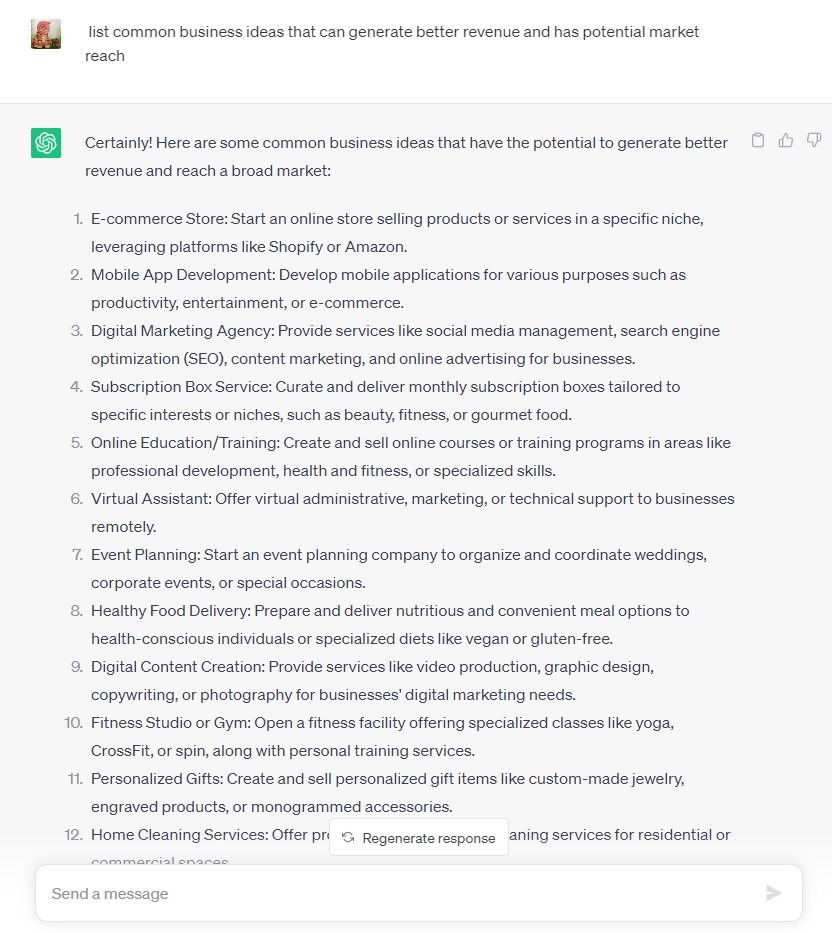
After signing up for ChatGPT using your email, click the New chat button and enter the following query:
List common business ideas that can generate better revenue and has potential market reach.
You can access the same ChatGPT content by clicking this link: ChatGPT Search Result
Here is what the Google Bard AI generated when I asked the AI tool the same question as mentioned above:
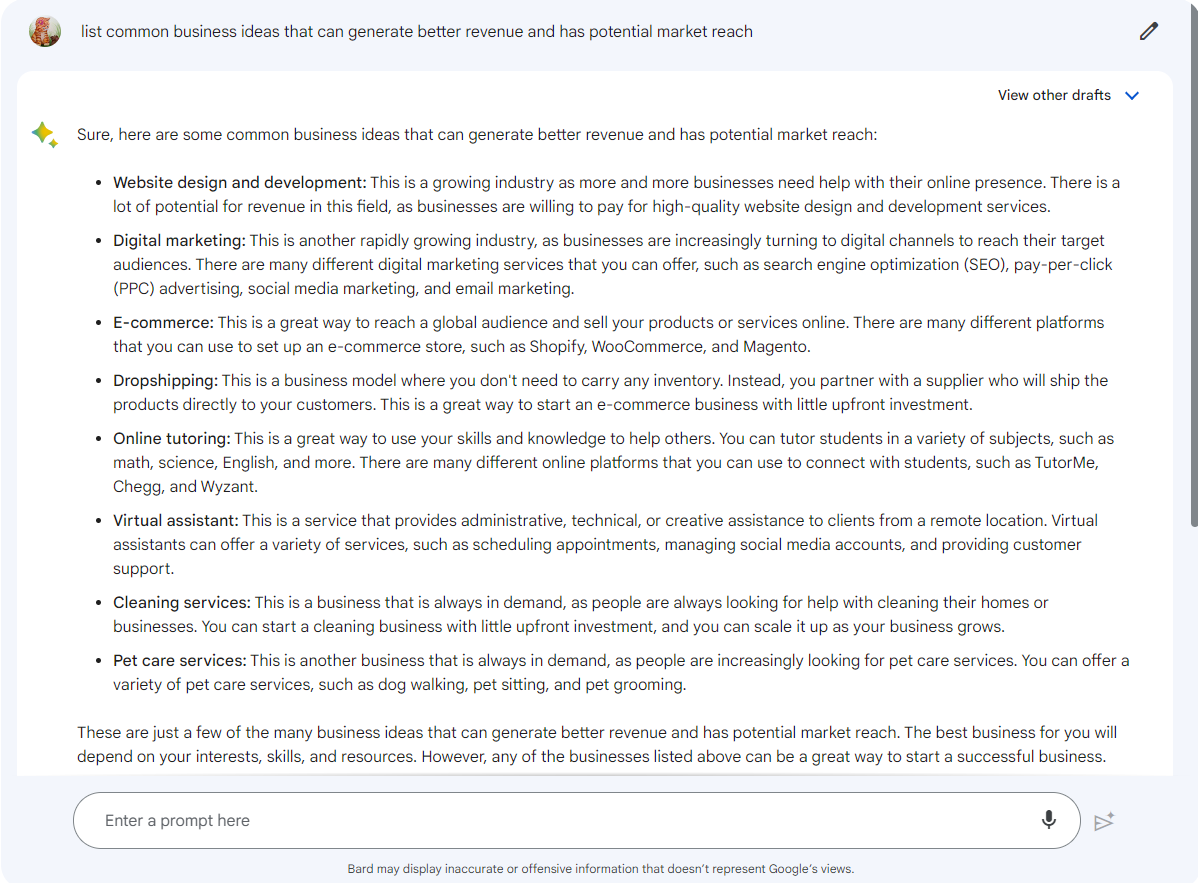
Using AI Tools to Describe Business Idea Planning
Now, once you have gone through the common business ideas above, you can use these AI tools to generate more details of a select business idea. For example, you are a content creator and popular person among your friends and followers on social media.
A great passive income idea for you is to start promoting products online and earn affiliate commissions. A great platform is Amazon Associates. If you do not know how to set up an account and start earning affiliate commissions on Amazon Associates, you can ask ChatGPT or Google Bard.
I queried the following question on ChatGPT, and here is the answer. You can access this content here: ChatGPT Search Result
How to set up my Amazon Associates account and start earning commissions.
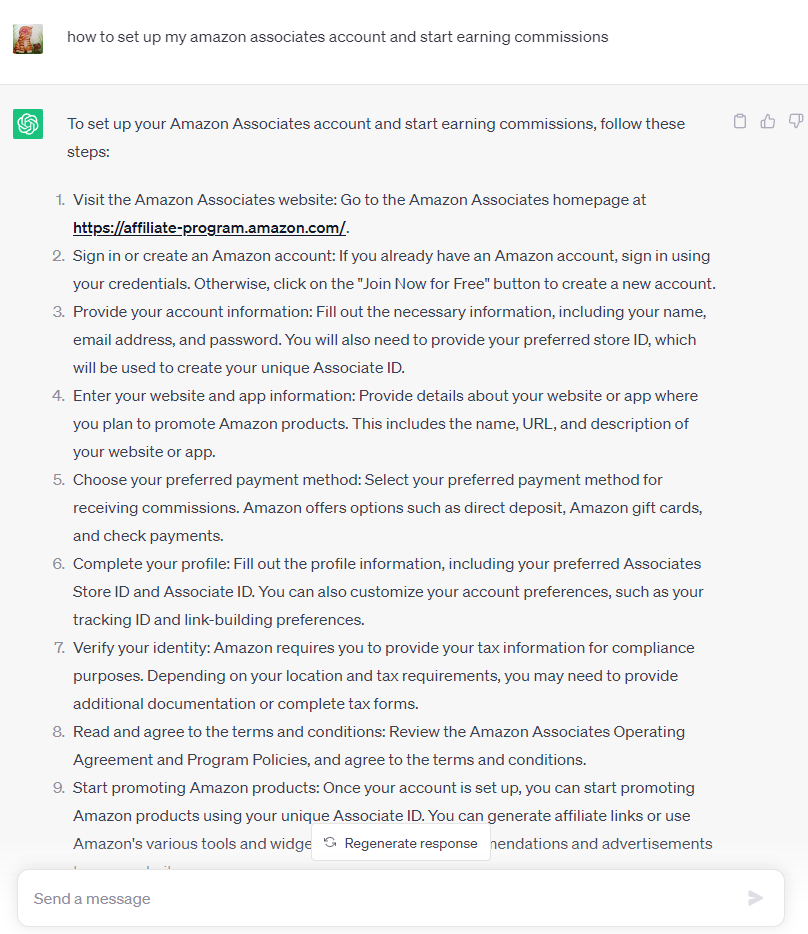
Similarly, Google Bard is also able to help you in elaborating a business idea, how to plan the next steps, and become a successful startup owner. For example, you can ask it the following questions and see what it generates:
How can I start a business of pet care services?
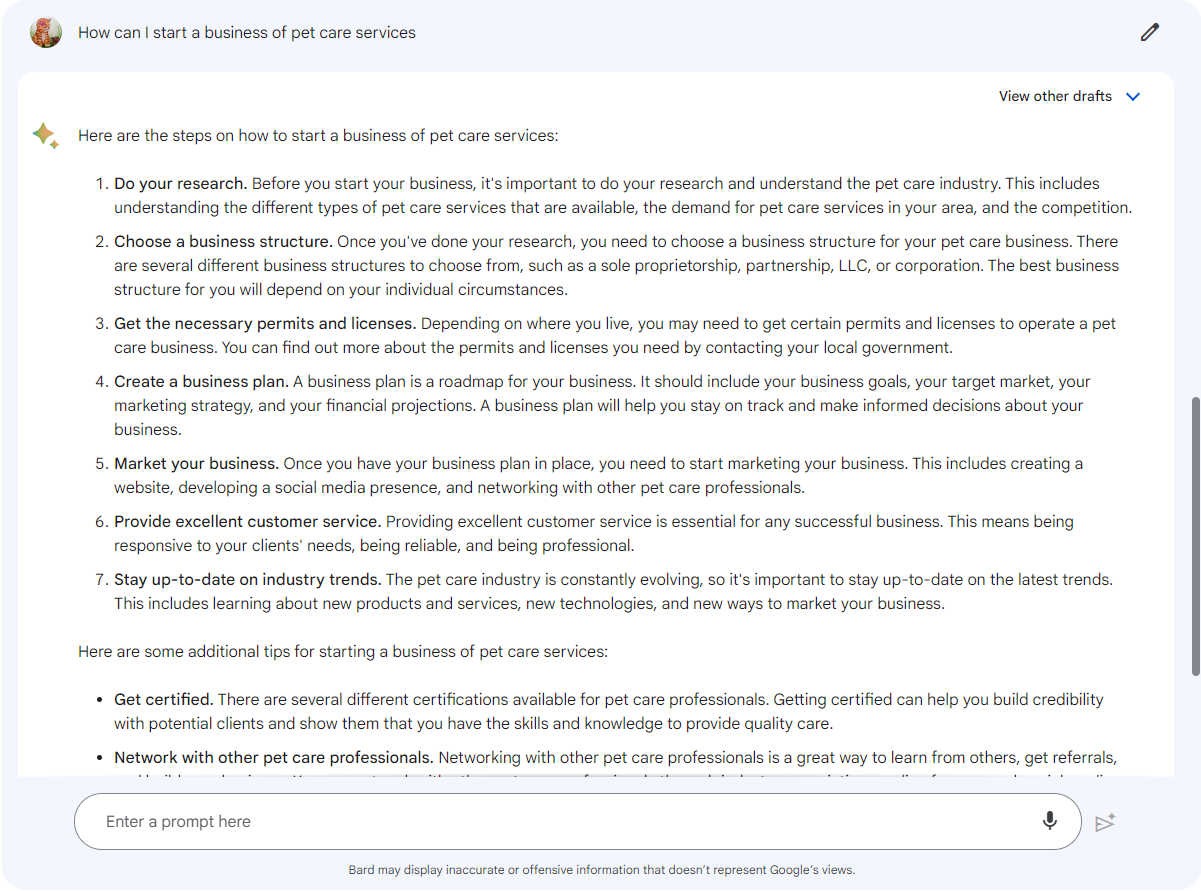
Elaborate Your Prompts
When asking questions to ChatGPT or Bard about setting up a business, you can fortify your prompts by asking the followings within the same prompt:
- Create a step-by-step guide
- Include a business plan
- Mention legal requirements
- List supplies, equipment, and software
- How to handle staffing
- What should be the marketing strategy
- Mention steps for management and accounting
How to Use ChatGPT to Generate Business Ideas
#1. Setting Up an HVAC Repairing Business
You can use the following prompt:

Here’s what ChatGPT produces as a step-by-step guide:
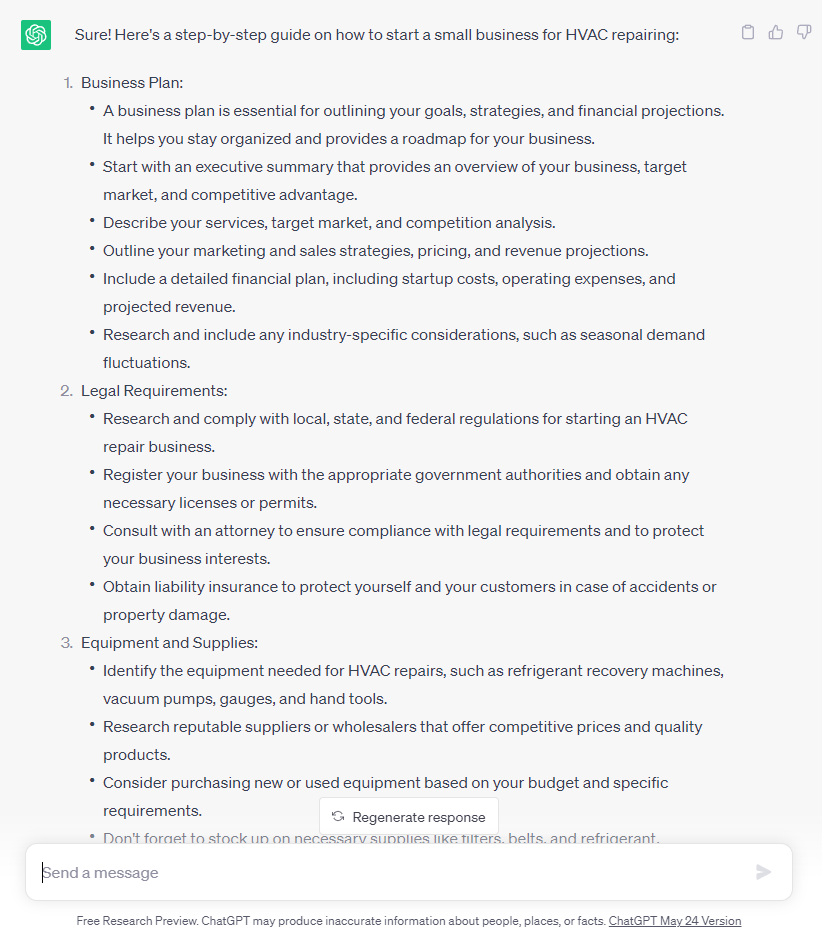
Access the AI conversation here: ChatGPT Search Result
#2. Setting Up a Web Publishing Business
Use this prompt to ask ChatGPT how to get started with the business:
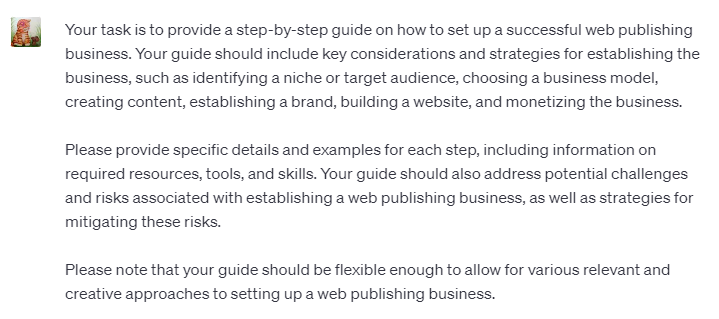
Find below an explanation of the AI tool:
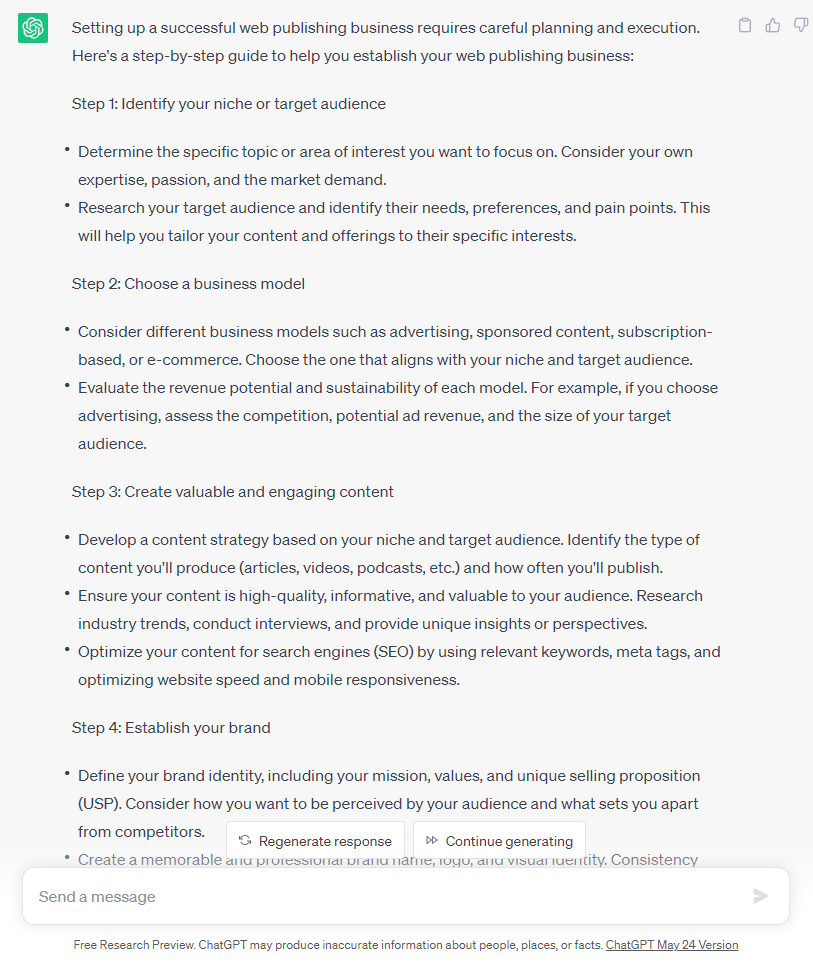
Access the AI conversation here: ChatGPT Search Result.
Conclusion
An AI tool can help you set up a fully functional startup from the ideation phase to kickstarting business operations. However, you must also use your own skill and online research to validate the steps suggested by an AI.
These AIs are still in their early phases of development. Also, the knowledge base on which the AIs were trained is not always up to date. But you can always use these AI tools to generate tons of ideas, planning, etc.
You can also read about the best ai tools to improve productivity for busy professionals

